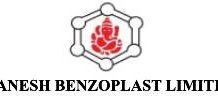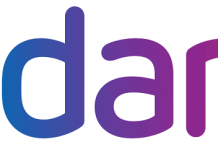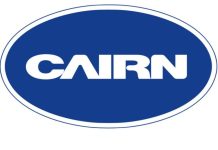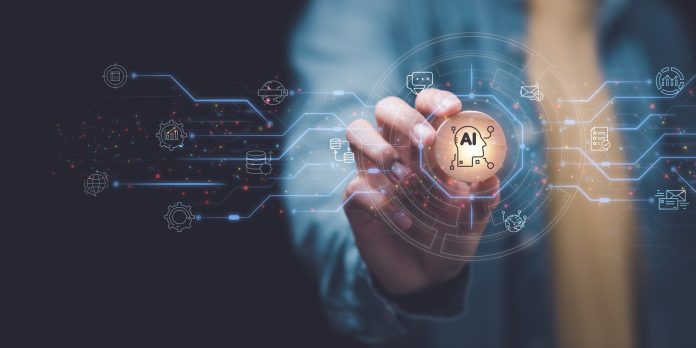AI has the potential to facilitate the various processes that go into EPC project execution, ranging from FEED and material procurement to site management. By leveraging historical data from previously executed projects AI can improve risk management. AI tools can lead to faster completion of EPC projects at reduced costs.
AI-Powered EPC Projects
l
arge infrastructure and energy projects are usually implemented on an Engineering, Procurement, Construction basis. The EPC mode also finds favour for the execution of many large and complex refinery and petrochemical projects. Also known as LSTK (LumpSumTurnKey) projects, EPC projects are characterised by a single contractor to oversee design, material procurement and construction. Under the terms of an EPC contract, the contractor is obliged to deliver a plant or facility to the client for a guaranteed price by a guaranteed date. Failure to do so can attract penalties for the contractor. In the EPC mode of execution, the client effectively transfers the project risk to the contractor.
FEED
Front-End Engineering Design (FEED) is crucial in EPC projects as it sets the foundation for successful execution. It lays the groundwork for the entire project by defining the technical specifications, estimating costs, and identifying potential risks. FEED crystallises the project scope and clarifies exactly what the project is about.
This minimises surprises and costly design changes during later stages and thus reduces the overall risk. FEED delivers a rough idea of the total investment required for the project, allowing stakeholders to make informed decisions. The FEED package acts as a blueprint for EPC contractors to submit bids based on a common understanding of the project requirements. It sets the stage for a smooth-running EPC project by ensuring everyone involved is on the same page about the project’s goals, technical details, and budget.
FEED Challenges
FEED preparation can be a complex and time-consuming process riddled with challenges. It is a tedious process involving collecting and integrating data from several and varied sources. It requires a number of qualified engineers who have the specific knowledge of a particular project. The FEED preparation team often works under tight time constraints. Tight deadlines often lead to rushed FEED preparation, which can increase the risk of errors and omissions. Ensuring standardisation and consistency across different documents is a huge challenge. Generating accurate cost estimates during FEED relies heavily on past project data and is prone to oversimplification and underestimation.
Generative AI (Gen AI) offers exciting possibilities to streamline and improve FEED preparation. Gen AI can be trained to automatically gather data from various sources, reducing manual effort and ensuring data accuracy. Gen AI can assist engineers by providing relevant information and design suggestions based on its knowledge of past projects and industry best practices. Gen AI can automate repetitive tasks and generate multiple design options quickly, allowing for faster iteration and optimisation during FEED. Gen AI can facilitate consistent and standardised FEED documentation. Gen AI can analyse vast amounts of historical data to identify potential cost drivers and predict project costs more accurately. By providing expert assistance, and improving data analysis, Gen AI has the potential to revolutionise FEED preparation, making it faster, more efficient, and less prone to errors.
Planning and Scheduling
AI can improve planning and scheduling in EPC projects by analysing vast amounts of data to predict project timelines, optimise resource allocation, and identify potential bottlenecks. Using historical project data, AI algorithms can generate more accurate and realistic project schedules, taking into account various factors like resource availability, and task dependencies. AI can also dynamically adjust schedules in real-time based on changing project conditions, such as unexpected delays or resource shortages. This adaptability ensures that projects stay on track and within budget. Additionally, AI can optimise resource allocation by matching the skills and availability of personnel with specific tasks, maximising productivity and efficiency.
Moreover, AI-powered tools can facilitate collaborative planning by enabling seamless communication and coordination among project teams, stakeholders, and contractors. By automating routine scheduling tasks and providing actionable insights, AI allows project managers to focus on strategic decision-making and problem-solving, ultimately leading to more successful and timely project completion.
Cost Overruns
Project cost overruns are often the result of several interconnected factors. Inaccurate cost estimations, stemming from underbidding during the bidding stage and the omission of hidden costs, frequently lead to budget discrepancies. Market fluctuations further compound this issue. Poor design and planning can force last-minute changes, causing delays and increased expenses. Change orders, a common occurrence in large projects, can trigger a ripple effect across various project components, necessitating additional resources and time.
Site management inefficiencies exacerbate these challenges, resulting in delays, disputes, and reduced productivity. Unforeseen circumstances may prompt scope changes, further straining budgets. Inadequate resource planning compounds these problems, hindering procurement and resource allocation.
Effective contract management is crucial, as errors or omissions in contact information can lead to lengthy negotiations and payment delays. Late payments, in particular, disrupt project timelines, leading to lost work, wasted labour costs, and delays in material delivery. Successful construction project management requires meticulous planning, accurate estimation, proactive resource allocation, and effective communication to mitigate the risk of cost overruns.
Material Procurement
Material procurement is the backbone of EPC projects. Timely acquisition of the right materials at the right cost ensures smooth construction, keeps projects on schedule, and directly impacts project success.EPC procurement faces hurdles like long lead times, complex global supply chains, and unexpected design changes. These can lead to delays, budget overruns, and project risk.
AI can analyse vast amounts of data to identify the best suppliers for specific materials, considering price, quality, lead times, and past performance. This can help procurement teams source materials more efficiently and negotiate better deals. AI can analyse historical data and project plans to predict material needs. This allows for better inventory management, reducing the risk of stockouts or overstocking, and ensuring materials are available when needed. AI can identify potential risks associated with material procurement, such as delays, price fluctuations, or supplier disruptions. By anticipating these risks, EPC companies can take steps to mitigate them, such as securing secondary suppliers or negotiating buffer clauses in contracts. AI can automate repetitive tasks in the procurement process, such as sending requests for quotations (RFQs), managing bids, and generating purchase orders. This frees up procurement teams to focus on more strategic tasks.
Risk Management
Gen AI can play a pivotal role in risk management of EPC projects by leveraging data analytics, predictive modelling, and decision support systems. It can analyse historical project data to identify patterns and anticipate potential risks, such as cost overruns, schedule delays, or technical challenges. Through natural language processing, it can extract insights from project documents, contracts, and communication channels, flagging inconsistencies or deviations from best practices.
Furthermore, Gen AI can simulate scenarios to assess the impact of various risk factors and recommend mitigation strategies. By continuously monitoring project progress in real-time, it can provide early warnings for potential issues, enabling proactive decision-making. Collaborative AI platforms facilitate communication and knowledge sharing among project stakeholders, enhancing risk awareness and fostering a culture of risk management throughout the project lifecycle. Overall, Gen AI enhances the effectiveness and efficiency of risk management in EPC projects, ultimately improving project outcomes.
































